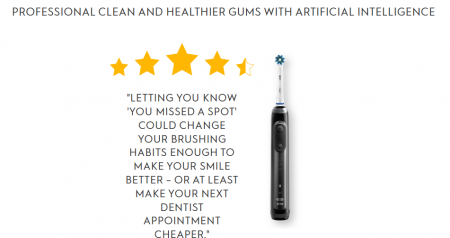With the new and emerging world, we are living in, medicine is rapidly changing with it. Healthcare is now no more in the box of hospitals and clinics due to the integration of modern technology.
Rather, it’s played out at this very moment-profession of faith is being forced out into the digital era where preventive medicine-not cures-are king.
Preventive medicine is nothing new to health care. It promotes early detection and prevention prior to disease onset, not just quicker treatments once the damage is done. We are entering a new era that of predictive health where technology is enabling us to reshape the way we think about being healthy.
Wearable Health Devices:
Wearable health gadgets Arguably the most in-your-confront noticeable advances we’ve seen pertaining to preventive medication, is the expanding accessibility of wearable innovation. Wearables like smartwatches, fitness bands, and the rest have become a part of our daily lives as we keep track of our activity status or simply how you sleep.

In addition to supplying users with useful data, these devices help healthcare providers as well because they process this data and allow the health providers for a collection of valuable insights on their patients’ overall health. It allows them to get a head start on health risks and customizes preventive measures.
Telemedicine and virtual health:
Telemedicine has achieved fair attention mostly due to COVID-19 pandemic. With virtual consultations and remote monitoring, it is much more accessible to people to have inputs from medical experts in their diagnosis while remaining at home even for cases where specialist care may be absent in the locality of the patient. Preventive care is no longer limited by environmental constraints or access restrictions.
Some of the patients can get better and appropriate advice on such minor health issues which would otherwise have taken a wrong turn to serious health defects. In the digital age, everything has been beautifully revolutionized — including healthcare which is now democratized as well.

Health Apps and Custom Health Plans:
There are a whole lot of health and wellness apps lately that allow individuals to watch their food plan, exercise, weight, and common health. These apps usually use machine learning and AI algorithms for individually tailored suggestions. Using information from a person’s health data and their own personal preferences, these apps can provide personalized recommendations for preventative measures such as diet or exercise. They allow people to be in control of their health and make more responsible decisions.
Big Data & Predictive Analytics:
Big data and predictive analytics are ushered in the healthcare space by the digital area. An example would be disparate patient-connected datasets health systems can probe to uncover patient history trends and perform predictive analytics on potential health outcomes. This opens the door for health care providers to address these high-risk populations and intervene in a more preventative fashion. Data is how we cure diseases — not just treat them.

Introduction to Genetic Testing; Lump in the Breast:
The Evolution of Precision Medicine Advancements in genomics made precision medicine a reality. This discovery enables provision of personalized prevention strategies: genetic testing to determine this genec.529_530delGA predicts HCM risk for an individual and which prevention strategies to employ. For these reasons, having knowledge about genetic risks can provide valuable information to healthcare providers who might make individualized clinical recommendations including tailored screening schedules or lifestyle modifications that may reduce risk. It is an online health education series.
In Today’s Date, There Is Drastic Change Seen by Internet and Social Media punters. Patients can access reliable content, reach out to healthcare professionals on multiple touchpoints, and participate in peer support communities online. The power of preventive medicine is rather not to diagnose and treat people but to educate people so that everyone has basic understanding and approach towards health issues to practice sovereignty about one’s body together with responsibility. It is only fair that everyone does their utmost to massively underrated facility of preventive healthcare, vaccination.
While obviously not considered digital technology, the deployment and monitoring of these vaccines has been aided enormously by our increasing digital maturity. EHRs and vaccination registries keep track of the vaccinations that need to be taken place and when they should happen. Furthermore, digital communication tools are equally helpful in communicating the healthcare workers and public health authorities in alerting the benefits of vaccinations, which prevent many infectious diseases to protect fair public healthism. In fact, digital technology is even woven into this most fundamental strand of preventive medicine.
Preventative medicine is important and there are other illnesses too, cancer being one of them wherein the quicker your clinician spots it the more likely you can cure it or prevent its spread;- simply detecting an early lung cancer, whether radiological or by sputum test. is a heck of a lot more likely to mean you end up with an excellent (cancer free or low- grade disease) 5-yearsurvival rate than sitting through three years before going in because you’re coughing blood.
On other hand by going Social Medical to make clinical vignettes available through online mode and the Information which Publishes over Internet destigmatize bureaucrats and common citizen, thus provide batteries question like crowdsourcing motivates patient for early screening, detection &treatment of cancer. In the end, we must weigh the virtues of innovation and constitutional privacy/security: it isa real dichotomy.
Let’s create a more transparent, more educated society than ever before … one that uses technology to help people be well, not just make them better after they’re sick.









